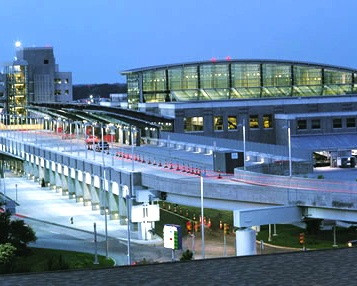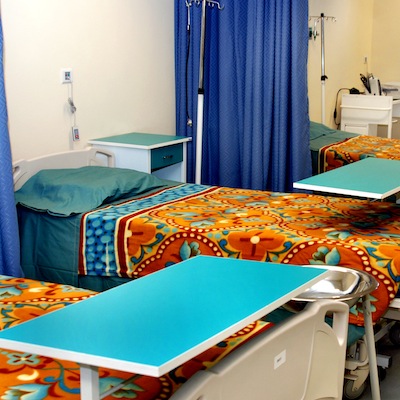Guest MINDSETTER™ Van Leesten: Governor’s Proposal Will Unleash Opportunity for All
Wednesday, February 08, 2017
More than fifty years ago, I had the opportunity to graduate from Rhode Island College. I was one of only a small group of students of color in my graduating class – four to be exact. I got lucky for sports was my ticket. The harsh reality is that college was an opportunity denied too many of my talented friends as the result of limited access and affordability. I wish I could write to say “that was back then.” Unfortunately, we’re not there yet as data bears out.
Since then, much change has occurred and Rhode Island’s future is dependent on the success of its communities of color. Latinos, Asians, and African Americans have driven all the state’s net population growth over the last two decades. As a result of this growth, our businesses, schools, and neighborhoods are becoming more diverse, and Rhode Island continues to live up to the promise Roger Williams made that our state would be an open, tolerant and diverse society.
Yet, communities of color are still struggling to succeed in our state. More than one out of every four of the state’s Latinos and African Americans live below the poverty level, compared with about one out of every 12 whites. People of color have higher unemployment and consistently lower wages, and Latinos and African Americans are far more likely to be “working poor”- meaning that they hold at least a full-time job but are still unable to escape poverty. For too long, communities of color have been left out of our state’s economic success. We must foster greater economic inclusion and continue to improve our commitment to ensuring that everyone can obtain a good-paying job or engage in business.
GET THE LATEST BREAKING NEWS HERE -- SIGN UP FOR GOLOCAL FREE DAILY EBLASTWe also know that Latinos and African Americans continue to be left out of today’s economy because too few have a college degree. Employers continue to require a more skilled and educated workforce, and the majority of good-paying jobs demand a college degree. Just 30% of African Americans, 21% of US born Latinos, and 15% of Latino immigrants have one. These gaps significantly hold back people of color. We can and must close this gap. Without equipping our communities of color with the chance to earn a college degree, our state’s future is in jeopardy.
Kids and families of color are not looking for special treatment. There are people of every demographic in Rhode Island struggling to catch up with our changing economy. That’s why Governor Raimondo’s proposed Rhode Island’s Promise will so effectively tackle these problems. The proposal would give ALL Rhode Islanders the same opportunities for a postsecondary education, providing every high school graduate two years of a college education for free beginning with the Class of 2017. Under the proposal, a graduate from Central High in Providence would get the same benefit as a graduate from Barrington or Westerly. The Governor knows that every one of our kids will need the option to go to college to succeed in our future economy, and this proposal ensures that opportunity is available for all.
The goal of Rhode Island’s Promise isn’t just to get students to go to college. It also institutionalizes equity and opportunity for all. The Promise guarantees everyone their shot at the American dream and will help ensure that everyone in the state has a fair shot in today’s economy. Let’s unleash the dream, and ensure that all our students are promised an opportunity to succeed. The untapped talent and creative energy that exists in this demographic growth is Rhode Island’s greatest economic resource. This educational initiative proposed by Governor Raimondo is progressive and should be viewed as a strategic investment that will yield great returns and make a qualitative difference in the lives of all affected by matters of affordability.
Michael S. Van Leesten is the CEO of the Opportunities Industrialization Center in South Providence and is a 1965 graduate of Rhode Island College.
Related Slideshow: Winners and Losers in Raimondo’s FY18 Budget Proposal
Related Articles
- Guest MINDSETTER™ Forleo: Festivus For The Rest of Us
- Guest MINDSETTERS™ Sen. Miller & Rep. Slater: RI Should Regulate Marijuana
- Guest MINDSETTER™ Rep. Nunes: General Assembly Needs a Cinderella Rule, and More
- Guest MINDSETTER™ Lambrese: Opioid addicts deserve dignity, not death
- Guest MINDSETTER™ Tom Kenney: Bankruptcy for Providence?
- Guest MINDSETTER™ Morse: The Station & The Ghost Ship
- The Tweeter in Chief - Geoffrey A. Schoos, Guest MINDSETTER™
- Guest MINDSETTER™ Rep. Costa: Post Election Suggestions for Disgruntled Americans
- Guest MINDSETTER™ Sen. Metts: Post-Election Thoughts at Thanksgiving
- Guest MINDSETTER™ Rep. Shekarchi: The True Nature of Study Commissions
- Guest MINDSETTER™ Stenhouse: DeVos as Sec. of Education - National School Choice Around Corner
- Guest MINDSETTER™Joe Allen: The Metric-Mania of Higher Education
- Guest MINDSETTER™ Rep. Ruggiero: Rhode Islanders are Doers
- Guest MINDSETTER™ Barden: My School Choice Story
- In Defense of Sean Todd: Guest MINDSETTER™ Jim Wright
- Dear President Trump, Build the Algonquin Pipeline: Guest MINDSETTER™ Morgan
- A Love Letter to the Right: Guest MINDSETTER™ Steve Forleo
- The Banality of Trump: Guest MINDSETTER™ Geoff Schoos
- Guest MINDSETTER™ Sen. Sheehan: Raimondo’s Free Tuition Proposal Makes RI an Educational Leader
- Guest MINDSETTER™ Seyler: Critical Spending Requires Critical Thinking at CCRI
- Guest MINDSETTER™Taub: Senators Reed & Whitehouse Stab Israel in the Back AGAIN
- Guest MINDSETTER™ Steven F. Forleo: Trump is a Machiavellian Poseur
- Guest MINDSETTER™ Congressman McGovern: America Cannot Afford Trump’s Nuclear Arms Race
- Guest MINDSETTER™ Tom Kenney: Pare & Elorza Still Have No Clue About the Fire Department
- This Less Perfect Union: Guest MINDSETTER™ Jim Wright





















